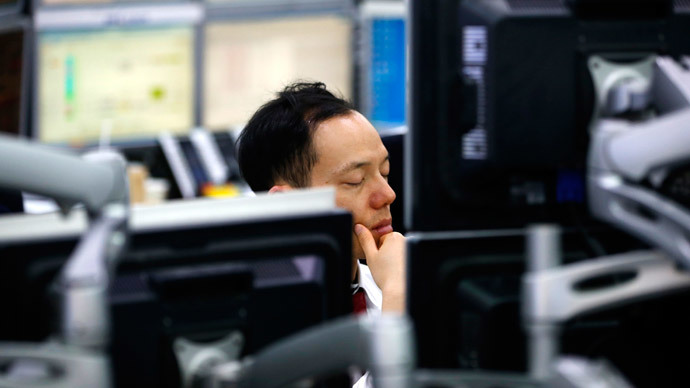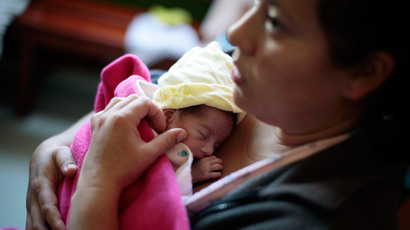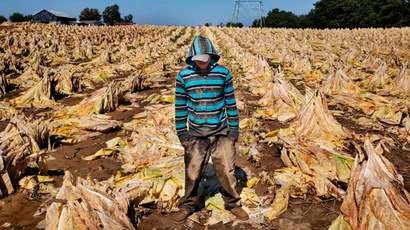More chance of dying from work than going to war - Intl Labor Organization

Going to war may seem one of the most hazardous ordeals on the planet, but perhaps not. The International Labor Organization (ILO) says there is more chance of dying from work than fighting for your country on the battlefield.
The admission was made by Guy Ryder, the ILO’s director-general, who was speaking at the 20th World Congress in Frankfurt to participants from 141 countries in what is the world’s largest occupational safety event.
“The challenge we face is a daunting one. Work claims more victims around the globe than does war: an estimated 2.3 million workers die every year from occupational accidents and diseases,” said Ryder, in an article published on the organizations website.
Ryder believes that work related deaths should get more attention than they currently do in the mass media.
“Ebola and the tragedies it is causing are in the daily headlines – which is right. But work-related deaths are not. So, the task ahead is to establish a permanent culture of consciousness,” he said.
While health and safety around the work place is improving, this is certainly not the case around the globe. In 2013, over 1,100 laborers died in a Bangladeshi factory after the building where they were working collapsed. Ryder believes it is unacceptable that people are forced to work in such conditions, where their lives are unnecessarily put at risk.

“This puts safety and health alongside forced labor, child labor, freedom of association and discrimination, which were recognized in the ILO Declaration of Fundamental Principles and Rights at Work.”
Ryder mentioned that total of cost of work related illnesses and accidents are a staggering $2.8 trillion around the globe. He also stressed the importance of investing in safety procedures and insurance, saying, “every dollar that is invested pays in.”
The head of the ILO said that it is imperative that better data is logged to record accidents at the work place, to help prevention and also give target figures to help reduce the number of mishaps: “We live in the Information Age where policy-makers have access to data on most issues. But in relation to occupational safety and health we lack data to design and implement evidence-based policies and programs. That’s a failure – also of political will.”
The ILO is a body of the United Nations and is based in Switzerland. It was founded in 1919 in response to the horrors of the First World War, as part of the Treaty of Versailles with the belief that lasting peace can only be achieved through social equality. Its purpose is to try and achieve better working, social and economic conditions for workers around the globe and to ensure that safety is paramount.















